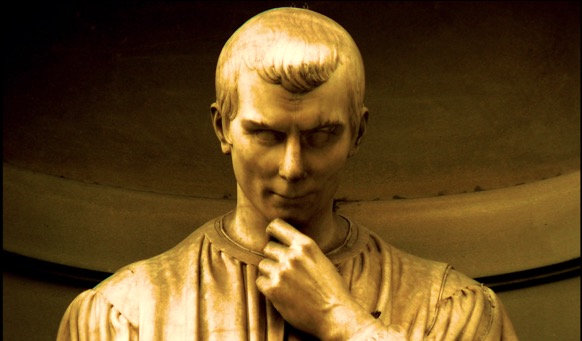The debate over capital punishment illustrates two irreconcilable views of the nation.
The Shipwreck of Modernity

We must recover the moral foundations of democracy.
It was commonplace during the long Cold War for conservatives and the more classical of classical liberals to make a firm distinction, at once conceptual and practical, between “liberal democracy” and “totalitarian democracy”; between moderate modernity and what Eric Voegelin called “modernity without restraint” in the final pages of his classic 1952 book The New Science of Politics. With much truth, the Jacobins, Bolsheviks, and Nazis were placed on one side, godless, murderous, and contemptuous of moral and political constraints as they were; and on the other side, we had the noble principles of the American Founding and what Alexis de Tocqueville called “liberty under God and the laws.”
In this understanding of things, Anglo-American democracy, the remarkably sober and decent politics of “the English-speaking peoples” as Winston Churchill famously called them, represented that non-ideological current of modernity that remained faithful, however imperfectly, to constitutionalism, common sense, moral decency and the living embers of classical and Christian wisdom. If rights had priority, duties were not forgotten. The American Revolution inaugurated no splenetic “Year Zero” as the French Revolution did, no frenzied war against the Christian religion or the broader Western civilizational inheritance, no misplaced effort to fundamentally remake human nature. The English-speaking peoples embodied that rarest of things, modernity with restraint, natural rights tethered to natural law, invigorating principle to sound prudence, material progress to a proper sense of limits and a well-grounded suspicion of utopian delusions. As Leo Strauss so suggestively said in his 1941 talk on “German Nihilism” at the New School For Social Research, the English, more than any people in continental Europe, had the great good sense to interpret their version of moderate modern liberty in continuity with older traditions of constitutionalism and civilized restraint. They refused, he said, to “throw the baby out with the bath.” And Americans largely followed but with rather less overt “classicism.”
For the longest time, one could thus confidently state that the Anglo-American sphere was immune to full-scale ideological politics and to the kind of moral subversion and facile nihilism preferred by continental intellectuals, great and small. Common sense seemingly reigned supreme, and religion still informed the exercise of individual freedom. Tocqueville’s account of American democracy—grounded in law, vigorous civic and associational life, and sound mores—still had remarkable verisimilitude. Americans still admired the Founding Fathers and statues of them had not yet been toppled.
But that “exceptionalism” is now largely a thing of the past and was much more vulnerable to assault than many of us suspected. The old liberalism has been replaced by emancipatory politics and liberty has been confused with a project for complete “liberation” from all limits and restraints. Natural rights, still informed by moral conscience and customary morality, by common sense and a recognition that some things are right and wrong “by nature,” has given way to ill-defined “human rights.” These new rights know no limits whether rooted in nature or tradition or the civic common good. They are thus largely immune to political debate and discussion. Abortion-on-demand has been sacralized by the progressive-minded and is seen by them as a “positive good” of the first order, like slavery with the southern slavocrats of old. Western democracies, from Belgium and Canada to France, compete to legalize and liberalize euthanasia, betraying the primordial task of the medical art “to do no harm” and showing open contempt for the sacred commandment “not to kill,” that is to murder, whatever the excuse or extenuating circumstance.
In this new moral and political dispensation, patriotism is passé, and the young are taught to be “citizens of the world” (whatever that means). At the same time, a fevered obsession with “race” and “gender” poisons common life and the relations between men and women. Sexual dysphoria is endemic and young women (in particular) suffer from unprecedented levels of anxiety and depression as a result. A cult of unrelieved victimization makes almost everyone whiny and resentful when they are not violent and aggressive.
In addition, student activists and academics (and the nearly the whole of the left-wing of the Democratic party) enthusiastically identify with the totalitarian Islamism and genocidal ideology of Hamas and give way to a hatred of Israel and Jews that is tied to their loathing of the Western world. In the academic world, “postcolonial discourse”—at once naïve, ignorant, and fanatical—assumes that peaceful, ecologically-minded “indigenous peoples” have everywhere been robbed of their birthright. But as Gene Callahan recently pointed out at Modern Age, there are no peoples who are simply “indigenous peoples” since conquest and settlement, peaceful or warlike, is inherent in the human economy of things. It is, alas, built into human nature and international life, it is how the world works. And indigenous peoples are hardly models of moral decorum, to say the least. As Leo Strauss wrote in 1942, a prudent and civilized human being should readily be able to tell the difference between “the tolerably decent imperialism of the Anglo-Saxon brand and the intolerably indecent imperialism of the Axis brand.” George Orwell chastised Gandhi in 1949 for failing to make that absolutely necessary distinction (see “Reflections on Gandhi,” one of his very last essays). And this from the fiercely anti-imperialist author of Burmese Days (1934).
Authentic liberal and civic education ought to prepare serious men and women for making precisely such distinctions. But such education, rare in any time or place, is on life-support today. Let us hope that the promising new institutes of “Civic Thought” that are being established in state universities in various red and purple states might make a dent in the massive replacement of true political and historical education by ideological agitprop of the most fanatical kind. We have nowhere to go but up.
On top of this galloping march of the totalitarian impulse within once liberal currents of modernity, this open subversion of what not too long ago could justly be called liberal democracy, the very meaning of democracy is being redefined by progressive elites. One does not have to bury what is right and just in the American Founding or in the decent currents of moderate modernity, to recognize that decayed liberalism is complicit in this frontal assault on what is left of political common sense and what we have called modernity with restraint. The evidence is all around us: tyrannical “lawfare” criminalizing opposition to the woke regime and attempting to incarcerate a former president of the United States on the most spurious and frivolous grounds; “hate laws” that make it a crime to uphold the traditional family or to oppose the arbitrary constructions of LGBTQ++ ideology; ongoing efforts to make adherence to the racialist and discriminatory DEI regime a prerequisite for being hired at a university; the shameless “debanking” of prominent conservatives such as John Eastman; and the attempt to shut down the National Conservative Conference in Brussels last month, as if advocates of humane national loyalty are indistinguishable from skinheads and neo-Nazis.
All of this is evidence of a “creeping authoritarianism” inherent in contemporary liberalism itself, as John Gray suggests in a recent thought piece in The New Statesman. Gray argues, rightly in my view, that “the fundamental threat to freedom in the West comes not from Marxism, postmodernism or even the increasing sway of autocratic regimes in boardrooms and universities, but from within liberalism.” Gray adds that liberalism “has become a self-referential world-view that screens out forbidden truths.” It is a censorious “secular catechism, an exercise designed to banish other modes of thought.”
In light of the rise of a new authoritarianism/totalitarianism in the name of the “cultish programs” of the ecological and life-style Left, Gray recommends democracy as the proper response to the “hyper-liberal extremism” that has led to “the politicization of law and the hollowing out of politics” in the Western world. The defeat of a referendum in Ireland promising far-reaching additional assaults on traditional social arrangements is no doubt a promising development of democracy at work, as is the backlash against an absurd “Hate Law” in Scotland. In the United States, many rally to Donald Trump, that most imperfect of vehicles, because he rightly discerns a new and menacing coercive despotism where many establishment figures on the Right see politics as usual.
Freedom Conservatism (for all its good intentions) won’t do because it radically understates the need to restore and reinvigorate the crucial moral foundations of a once liberal order. Freedom without self-limitation and deference to the ends and purposes informing human freedom cannot begin to overcome the totalitarian impulse within contemporary hyper-liberalism. Democracy, in contrast, in the form of the revitalization of self-government, provides a very good start, indeed. But democracy will perish if the old common sense is not renewed by right reason, recta ratio as our forebears used to call it. We must become cognizant of the deep and abiding reasons for opposing the modernity without restraint which saps our souls of strength and empties our civic freedom of meaningful content. As Brad Littlejohn has recently written at World magazine, we can no longer rely on a “silent majority” partly (largely?) converted to materialism and a debased individualism. Hyper-liberalism openly wars with the idea of the Good itself, finding even in human nature itself an intolerable obstacle to a freedom that is collapsing into despotism and moral incoherence. That is where we are. To refuse to acknowledge our present circumstances is to bury one’s head in the sand, to abdicate our intellectual, moral, and civic responsibilities.
As we fight the good fight day by day, we must patiently, but vigorously, recover and renew the pediments and principles that undergird American liberty and Western civilization, rightly understand. That vital task lies before us.
The American Mind presents a range of perspectives. Views are writers’ own and do not necessarily represent those of The Claremont Institute.
The American Mind is a publication of the Claremont Institute, a non-profit 501(c)(3) organization, dedicated to restoring the principles of the American Founding to their rightful, preeminent authority in our national life. Interested in supporting our work? Gifts to the Claremont Institute are tax-deductible.
In a collapsing age, humor and spirit alone won’t do us justice.
As Harry Jaffa taught, political philosophy and justice are real.



